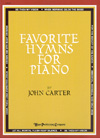- |
User Links
When Morning Gilds the Sky
Hymn Information
- First Line
- When morning gilds the sky
- Translator
- Edward Caswall (1858, alt.)
- Text Source
- German, ca. 1800
- Tune Name
- LAUDES DOMINI
- Composer
- Jospeh Barnby (1868)
- Topic
- Praise of Christ · Time · Elements of Worship: Opening of Worship: Called And Gathered
Copyright Information
- Text Copyright
- Public Domain
- Tune Copyright
- Public Domain
- Reprint/Projection Information
- Words and Music: The Words and Music are in the Public Domain; you do not need permission to project or reprint the Words and Music.
Full Text
Scripture References
- · ·
Thematically related:
- st. Refrain =
- st. 1 =
- st. 2 =
- st. 3 =
Further Reflections on Scripture References
A morning hymn (st. 1) as well as an evening hymn (st. 4), the text presents praise to Christ from angels and human creatures (st. 2) and from the elements of earth to the farthest reach of the cosmos (st. 3). In fact, this text is for all times and places: "Be this the eternal song"!
Psalter Hymnal Handbook
Confessions and Statements of Faith References
Further Reflections on Confessions and Statements of Faith References
What can possibly be so important that it is our first cry in the morning and our last thought at night? Belgic Confession, Article 20 testifies that God gave us “…his Son to die by a most perfect love” and then raised him to life “for our justification in order that by him we might have immortality and eternal life.”
Because of such perfect love, comfort can be found in the words of Heidelberg Catechism, Lord’s Day 1, Question and Answer 1: “I belong—body and soul, in life and in death—to my faithful Savior Jesus Christ.” This is our cry—first thing in the morning and last thought at night!
When Morning Gilds the Sky
Introductory/Framing Text
Additional Prayers
“The sun of righteousness rises
with healing in its wings!” (Mal. 4:2)
We pray for your Spirit to help many,
both far and near,
to experience this healing power,
and to join us as we say,
“May Jesus Christ be praised!” Amen.
When Morning Gilds the Sky
Tune Information
- Name
- LAUDES DOMINI
- Key
- B♭ Major
- Meter
- 6.6.6 D


 My Starred Hymns
My Starred Hymns






